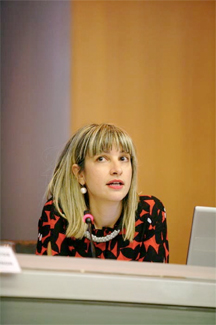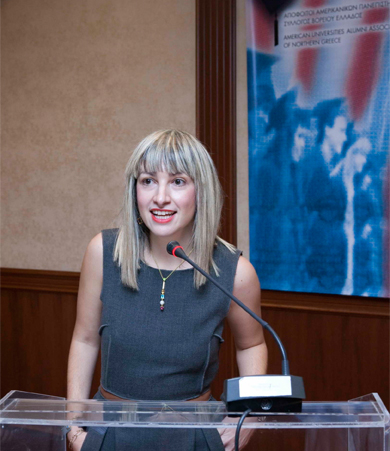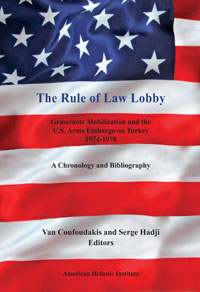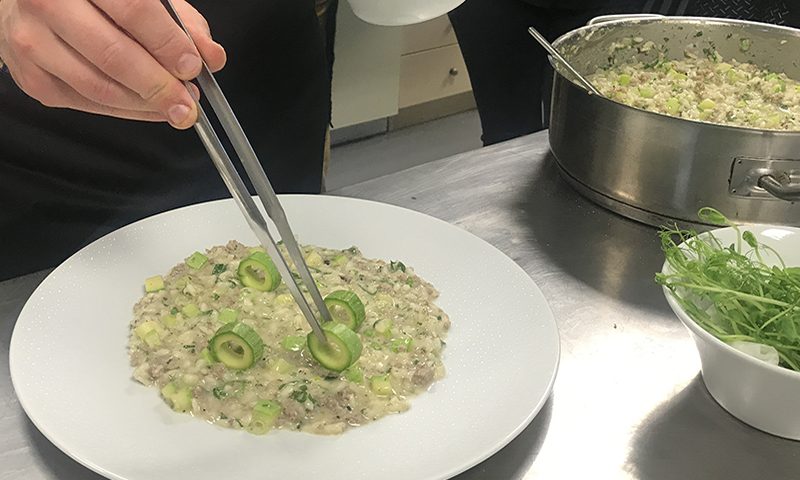Alumna Zizi Papacharissi ’91 is professor and head of the Communication Department at the University of Illinois-Chicago. Her work focuses on the social and political consequences of online media. The author of a multitude of books, journal articles, and reviews, she serves on the editorial board of eleven journals. Her work has been translated into Greek, Chinese, Korean, Hungarian, German, and Persian.
 Did your years at Anatolia help prepare you for moving to America?
Did your years at Anatolia help prepare you for moving to America?
Definitely! More than anything else, Anatolia helped prepare us culturally for the changes we would encounter, whether here or anywhere else our lives took us.
What was the most useful course you were taught at Anatolia, and what memories do you still hold of those days?
Personally, I never liked to study very much. Although I excelled, I studied mostly just when we had exams, and I was always “reading on my feet” or on the bus – that is, at the last moment! My natural instinct was (and is) to learn as much as possible during class time. I am a visual learner, and this helped tremendously, especially when the teacher was especially engaged. Thus I learned from my own teachers, how to teach by talking with my students and not to them. And of course, the activities at Anatolia – as a student I worked on the school publications and forensics – which helped guide me finally into my own field today.
What changes can you observe, looking at the Anatolia of today?
Many changes! I graduated in 1991, and even then Anatolia was known for a progressive approach to education. Today, the school has far surpassed the rest of our schools, both those found in Greece as well as abroad. The campus, the level of teaching, the activities, and above all, the freedom of thought which characterizes all stages of the educational environment – all these transform Anatolia from a teaching institution into a real community.
And it’s not only what has changed at Anatolia, but what we wish to change about the school, that is, how our generation can leave an imprint as others have in the past. We owe this as graduates, to support our school in a creative, multi-dimensional and inspiring way, both those of us who are local as well as who reside elsewhere.
One way to so this is through giving, and development programs – which is not so widely accepted in Greece but is a way of life outside our country. Schools, and universities as well, can’t survive solely on the basis of their tuition; they all depend upon the generosity of their graduates whose recognition of what they gained spurs them to give back. Anatolia has always been ahead of its time, and really defined the meaning of modern education in Greece, by constantly offering new, and more inspiring, experiences. It is our responsibility, as alumnae, to support our school in the most imaginative ways we can, so new generations can benefit in the way we have from this inspiring institution.
You have lived in the USA for many years now. What elements of American culture have you embraced and what parts of Greek culture have proven useful in your life there?
I had always wanted to go to the US for studies, and then to remain there to work, as I realized from a young age that there were many things which kept us, as a country behind. We have, as Greeks, recently begun to acknowledge these things but have not yet begun to overcome them. In addition, my doctoral research topic – the cultural and political behavior on the internet – was quite innovative back in 2000, and there were few others who specialized in the field. This area was viewed with indifference by the Greek universities back then. I must say, however, that the US is no paradise either. There are many chances to succeed, but you must work very hard and be prepared for really harsh scrutiny. The working environment is friendly, although it often seems superficial. I have tried to mix the positive aspects of both my cultures – the Greek and the American – but this can sometimes be a difficult balancing act! Times are changing though, and many of us share this “one foot in each land” lifestyle – we live in one country and another, with one part of our hearts in one culture and one in another; we are, in effect, citizens of the world. But you know something – in this regard Social Media is a great tool for me to keep in touch with both sides of my ‘cultural identity.’
The interview was first published in the spring 2015 edition of “The Anatolian” publication



